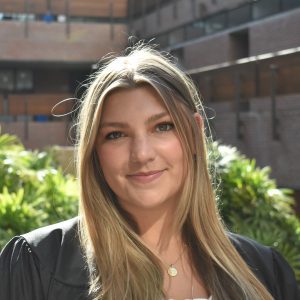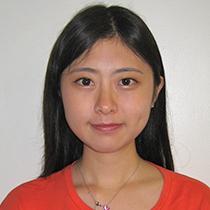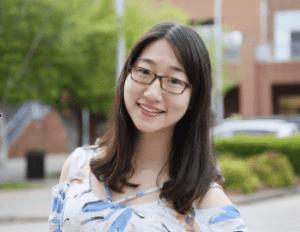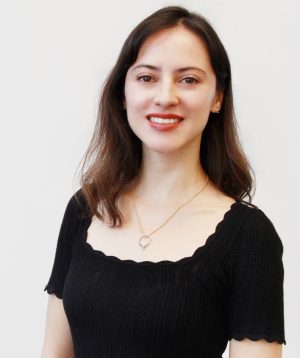The Orangefiery Master’s Thesis of the Year Award, sponsored by Orangefiery, honors a graduate student who produces an outstanding Master’s thesis or project of original research. The winner of this award receives a $2,000 award and their faculty advisor receives $1,000. The winner will also receive a complimentary ticket and travel to the Annual IPR Distinguished Lecture and Awards Dinner on December 4, 2024.
Deadline: June 16, 2024
Criteria
Entries are judged on their contribution to the advancement of research-based knowledge in the field of public relations and the degree to which the research is relevant or has an impact on the profession.
Entries should test or develop theory within the public relations context; systematically test an applied public relations principle, case study, or practice; analyze a legal, historical, or societal question in the field; or critically review an issue relevant to public relations practice, research and/or teaching.
Judging
Papers will be reviewed by a blind panel of judges including Institute for Public Relations Trustees, industry leaders, and Orangefiery executives.
The potential significance of the study, quality of the research method, and written presentation will be judged among other criteria.
How to Apply:
- Please complete the application form and send the following materials in an email using the subject “Orangefiery Award” to info@instituteforpr.org.
- Application form (click here to access)
- Since the judging is blind, it is important to include the final title of the thesis or project in the application form, and that same title in the paper.
- Thesis or written project
- Please submit the paper as a single PDF document
- Please omit any identifying information, including author name, advisor name, the educational institution, or other identifiers. Papers with identifying information will be disqualified.
- Executive summary of thesis or project
- (Note: The executive summary is the basis for judging in the first round)
- Please submit this as a separate file from your thesis or project
- The summary should provide a synopsis of your thesis or project and may not exceed 1,000 words.
- This summary should include:
- Significant citations
- Research questions and hypotheses
- Brief description of the method including sample size and characteristics
- Summary of key findings and implications for the practice
Other Application Requirements
- The thesis or project must be authored as part of a Master’s degree (i.e., MA, MS, MBA, MJ, MPR, etc.) awarded by an accredited college or university. The thesis must have been completed within 18 months of the award deadline. It must be written and completed in the agreed-upon time frame.
- Entries should conform to the scholarly study and legal research methods.
- Research should have applicability beyond the confines of a given campus.
- The thesis or project must be authored by one student. Group papers or projects are not allowed.
- Applicants have the option to submit their paper for blind-review for the PR Journal.
- AI-generated content must be cited using the IPR AI guidelines.
Visit the Orangefiery website here.
Past Winners:

University of Florida
O’Neill’s thesis, titled “IRT, Past Crises, and Twitter: An Examination of the NFL’s Response to the Black Lives Matter Movement,” delves into the world of digital activism with a focus on strategies for addressing the challenges of today’s digital landscape, with a particular emphasis on informing and guiding activists.
Zilnicki’s study, “Lying Through One’s Tweets: How False Rumors Deter Public Compliance During Crises” investigates how misinformation (false rumors) can affect individuals’ processing of information, attitudes toward compliance, and intentions to comply with governmental guidance during a crisis. Read her thesis here.

Maldonado conducted a content analysis of five case studies, interviewed two industry experts, and reviewed secondary sources. Her analysis was complemented with insights from the AI-powered software Crimson Hexagon. Read her full thesis here.

Waxman conducted a series of in-depth interviews with various experts including computer scientists, communications researchers, PR agency owners, entrepreneurs, and journalists to hear their insights and ideas and compare and contrast their responses in an attempt to find some overarching themes. Read his full thesis here.

This study is one of the first to examine negative social media engagement and its impact on organization-public relationships. Public relations practitioners can gain insights on how to develop operational strategies on social media and establish positive relationships with publics by avoiding potential factors that can bring about negative peer communication on social media.

Sun’s thesis, “Effects of Source Credibility via Social Media on The Risk Perception and Purchase Intention Toward Genetically Modified Foods: A Cross-Cultural Study between Young Millennials in China and The U.S.” found that long-term communication and education about genetically modified foods to young Millennials are necessary before one can increase his/her purchase intention. Her thesis suggests public relations practitioners in China should have scientists serve as a credible information source to inform stakeholders about the benefits of GM foods. In the U.S., a mixed approach of scientists and government was found to be more effective.
Rowena Briones, University of Maryland
“How Young Women Make Meaning of Sexual Assault Campaigns“
Moonhee Cho, University of Florida
“Top Corporate Donors and Charitable Organizations: Utilizing the Coorientation Model to Examine Benefits and Relationships”
Faculty Advisor: Kathleen S. Kelly, Ph.D., Professor, Department of Public Relations, College of Journalism and Communications, University of Florida
Hye Kyung Kim, Syracuse University
“Stakeholders’ Evaluation Processes of a Racial Crisis”
Major Chad G. Carroll, University of North Carolina-Chapel Hill
“The U.S. Army Public Diplomacy Officer: Military Public Affairs Officers’ Roles in The Global Information Environment.”
Catherine Sheldon, University of Georgia
“Image Repair on the Political Front: An Experiment Testing Effects of Communication Strategy and Performance History in a Political Faux Pas”
Yimin Wang, Univeristy of Florida
“Cross-National Conflict Shifting: A Case Study of the DuPont Teflon Crisis”
Marcia Watson, University of South Florida
“Organizational Uncertainty Management: Developing a Framework for Public Relations Practitioner Involvement”
David Youngmeyer, University of Maryland
“The Development of Reputational Relationships and Perceived Sources of Out-Group Attitudes in the Professional Socialization of Journalism and Public Relations Students”
Rocky Cabagnot, University of Florida
“Celebrities and the Right of Publicity: A Study of Economic Damage and Moral Rights”
Tina Carroll, University of South Alabama
“How Public Relations is Perceived and Taught in MBA Programs: A Survey of Business School Professors”
Kimberly Gill, University of Florida
“Seeing the Forests for the Trees: Communication and Relationship Building Tactics of Activist Groups and Forest Products Companies”
Yunna Rhee, University of Maryland
“Confucian Culture and Excellent Public Relations: A Study of Generic Principles and Specific Applications in South Korean Public Relations Practice”
Christopher Knaus, Washington State University in Pullman
“The AIDS Memorial Quilt on a College Campus and its Implications: An Analysis of the Effectiveness of Alternative HIV Prevention Education and Awareness Building Events”
Carol Ann McKeown, San Jose State University
“Candidates’ Web Site Use During the 1996 Presidential Campaign”
Virginia Sheng, University of Maryland
“Multicultural Public Relations: A normative approach”
Murvyn Callo, University of Southern California
“Total Quality and Excellent Public Relations: An Analysis of Total Quality Management Practices that Impact Performance of Corporate Public Relations Practitioners”
Martha Lepore, Boston University
“Professionalism and the Public Relations Body of Knowledge: Implications for an Emerging Profession”
Gregory Smith, University of Minnesota
“Making Medicine Matter: A Study of Hospital Communications”
Zoraida Rosario, Syracuse University
“The Utility of Ehling’s Means-Ends Paradigm of Public Relations Management: A case study Approach”
Jo Nell Miettinen, San Diego State University
“Intent and Behavior: A Prediction Model Examining the Gap Between Stated Intent and Actual Behavior”
Eric Haley, University of Georgia
“The Relationship of Organizational Structure and Communication: A Study of Daily and Crisis Communication Activities of Hospitals”
Kerry Humphrey, University of Maryland
“Entrepreneurial Women in Public Relations: Why Open Collars?”
Barbara Lynn Wetherell, University of Maryland
“The Effect of Gender, Masculinity, and Femininity on the Practice of and Preference for the Models of Public Relations”
Jody Buffington, University of Maryland
“CEO Values and Corporate Culture: Developing a Descriptive Theory of Public Relations”
John Gibbs, University of Florida
“An Evaluation of Grunig’s Decision-Situation Theory of Communication”
Marianne Portugal Dayrit, University of Florida
“Boundary-Spanning Roles: Public Relations and Media Practitioners”
Mark E. Cattell, University of Georgia
“An Assessment of Public Relations and Issue Management in Relation to Strategic Planning in American Business Corporations”
C. Del Galloway, University of Florida
“Dimensions of Media Credibility as Contingent Conditions in the Agenda-Setting Process”
James B. Cook, University of Wisconsin-Madison
“Public Relations Roles and Practitioner Communication Behavior”
David Micklos, University of Maryland
“Constraints on the Social Responsibility of Public Relations Science Writers”
Alan W. Jensen, Brigham Young University
“Functional or Functionary: An Examination of the Status of Public Relations in Large U.S. Banks”
*Northwestern Mutual sponsored the Best Master’s Thesis of the Year award through 2010. Makovsky sponsored the award 2017-2020. Orangefiery took sponsorship of the award in 2021.


